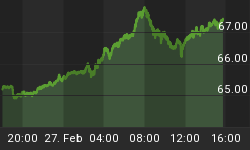The current equity bull market, about 10.3 years old, is already the longest in history. It’s been a phenomenally profitable time to invest, with the S&P 500 having more than tripled since February 2009. Income investors have fared even better, with dividends and stock buybacks shooting to all-time highs after President Trump’s tax reform.
This market has so far survived a myriad of challenges, ranging from stratospheric valuations and slowing economies to trade wars and hawkish central banks. And now it has to contend with yet another deadly headwind: falling corporate profits.
According to FactSet data, a good 87 percent of S&P 500 companies have warned that their second quarter earnings scorecards are likely to disappoint with earnings coming in below expectations.

Source: Google
Earnings buzzkill?
That would mark the second-highest earnings miss on record in the post-crisis era, trailing only the first quarter of 2016.
Even more worrying is the fact that technology, consumer goods and retail companies--sectors with significant exposure to the volatile Chinese market--make up more than half of the profit warnings.
Given that tech stocks have mostly been leading the charge in the current bull run (only a handful of high-powered stocks, mostly in the tech sector, have accounted for 25 percent of the S&P 500 rise ), how will a slowdown by the pivotal sector impact the rest of the market?
Bear in mind that the tech-heavy Nasdaq Composite is still the best-performing of the major indexes (YTD return of 23.1 percent vs. 19.5 percent by S&P 500 and 15.6 percent by the Dow Jones). Chip marker Advanced Micro Devices (NASDAQ:AMD) is the second-best performer in the S&P 500 while FANG stocks have been equally outstanding.
Well, there are two schools of thought—and both appear equally valid.
The bear camp…
One one hand, the bears argue that the combined weight of U.S. trade wars with major partners including China, India and the EU; geopolitical tensions in the Middle East, ongoing global economic slowdown and weak earnings will finally prove too much for the market and finally bring it down to its knees.
Related: What Would You Do If You Found A Wallet On The Street?
As Matt Daly, MD head of credit and investment research at Conning, has warned on CNN, we cannot escape the fact that the market has been shrugging a lot of things off including kicking the can down the road with trade.
Further, Lori Calvasina, equity analyst with RBC Capital Markets, also took to the CNN airwaves, warning that the impending rate cuts by the Fed along with deteriorating economic data are not likely to sit well with stock markets. Under normal circumstances, lower rates would be bullish for stock markets; however, some experts now feel that they have already been fully priced into the markets and will, therefore, have minimal, if any, positive impact when they finally happen (beginning as early as this month).
The bull camp…
In the bull camp, some punters contend that the market is likely to overlook near-term results.
Notably, Jason Pride, chief investment officer of private wealth for Glenmede, says an earnings recession does not necessarily equate to a real economic recession. Pride points out that stock markets have fallen an average of 5.5 percent during actual recessions dating back to 1926 but have actually climbed 15 percent on average during earnings recession that were not accompanied by economic recessions.
Doug Foreman, CIO at Kayne Anderson Rudnick Investment Management, told CNN this is already happening as we speak. Foreman has told CNBC that he expects the earnings slowdown to be modest, with a fourth-quarter rebound expected to push full-year earnings growth to low-to-mid single digits.
Bulls have the momentum
In the final analysis, it appears as if the bulls have the momentum here. Over the past couple of years, pundits have been predicting the end of the business cycle citing its longevity. Yet, bull cycles rarely die of old age, with wars, economic shocks, debt crises and changes in monetary policy being the biggest killers historically.
Funny thing is that all these factors have been at play for several years now, yet the market has all along remained indifferent. This bull market might not run indefinitely—the million-dollar question is what will finally slay it.
By Alex Kimani for SafeHaven.com
More Top Reads From Safehaven.com:
















